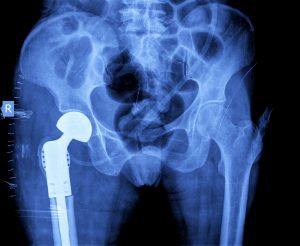 Every year, there are more and more cases of hip replacements, with osteoarthritis being the most common reason. In fact, over the last 10 years, the number of hip replacement surgeries has doubled.
Every year, there are more and more cases of hip replacements, with osteoarthritis being the most common reason. In fact, over the last 10 years, the number of hip replacement surgeries has doubled.
Hip replacements have come a long way and have become a somewhat standard procedure nowadays. But going through the recovery period and all those physiotherapy sessions to get back on your feet again can be grueling. If you don’t require a hip replacement just yet, why not take some preventative measures to reduce your risk of ever needing one?
4 tips to prevent a hip replacement
Advertisement
Maintain a healthy weight: If you already have arthritis, carrying around that extra weight could be speeding up its progression. Every 10 pounds of weight gain equate to an additional 75 to 100 pounds of load on the joints. Over time, this extra load speeds up the cartilage breakdown, leading to bone-on-bone friction. On the other hand, losing weight can slow down the loss of cartilage. Studies have shown that an 11-pound weight reduction over 10 years has led to a 50 percent reduction in joint pain, too.
Exercise regularly: Regular exercise maintains muscle strength, which is important because muscles keep your core strong and stable. What’s the benefit for hips here? A strong core supports the hips and keeps them aligned. Find a type of exercise you enjoy to make sure you stick with it. Cycling, walking, or swimming are just some of the examples.
Modify activities: Experiencing hip pain when completing activities should prompt you to modify whatever it is that you’re doing or stop it altogether. The more you push through pain, the higher the risk of injury, which can end up in a hip replacement. If you are unsure how to change your activities to make them safer, work with a physiotherapist or a trainer.
See a specialist: Knowing when to see a specialist can save you from many complications. The earlier you get yourself examined the better your diagnosis can be. Seeing your doctor at the first sign of a hip joint problem can help you maintain cartilage and prevent irreversible damage to the hip joint. The doctor can also recommend you any remedies or solutions for strengthening your joints and preserving the cartilage.
